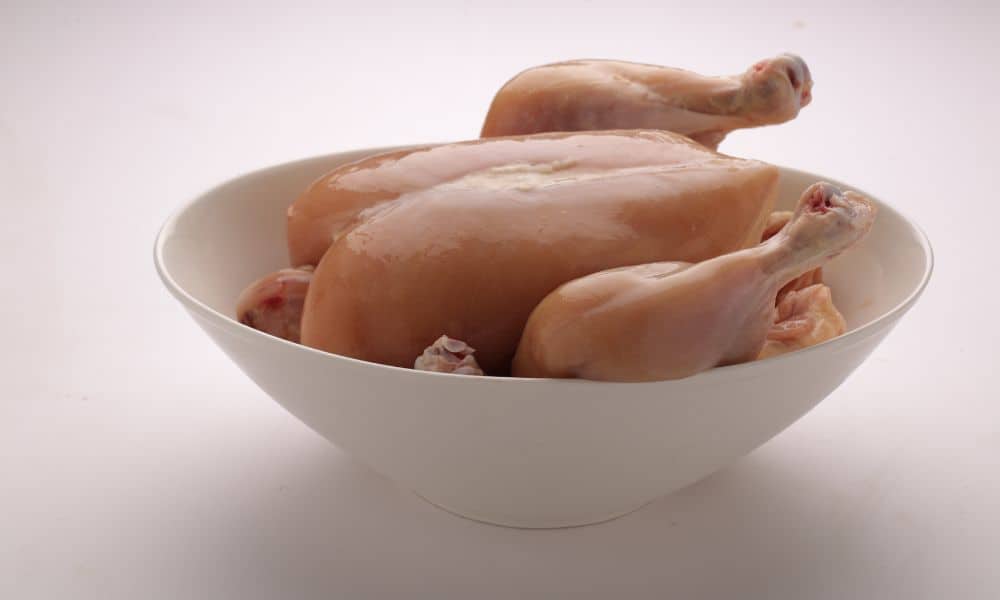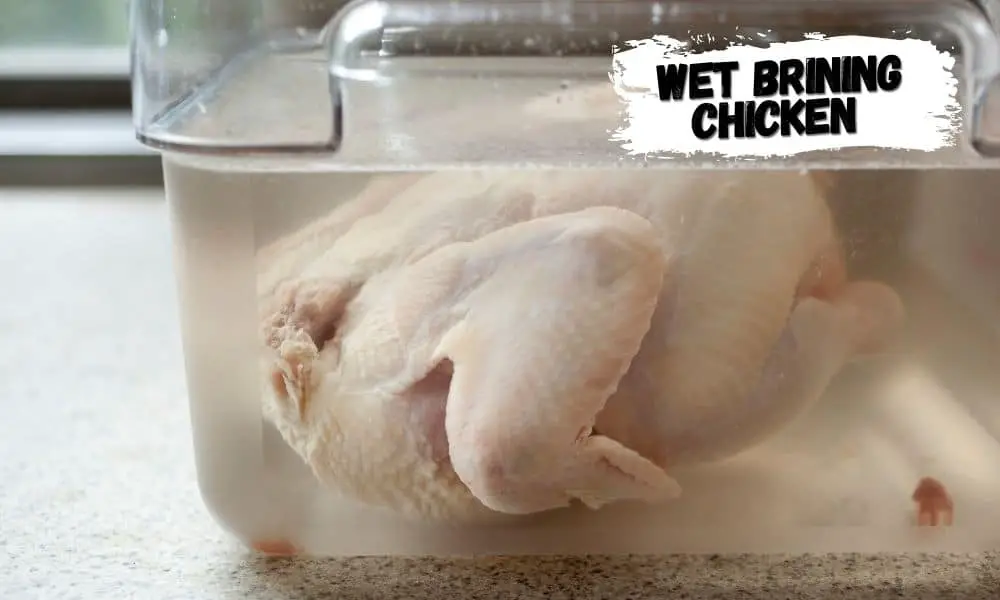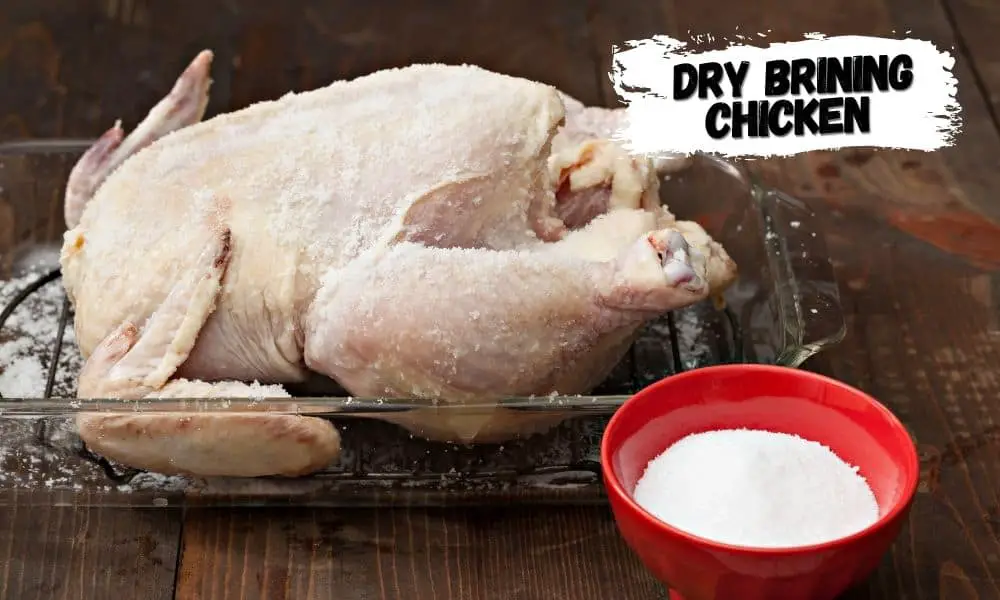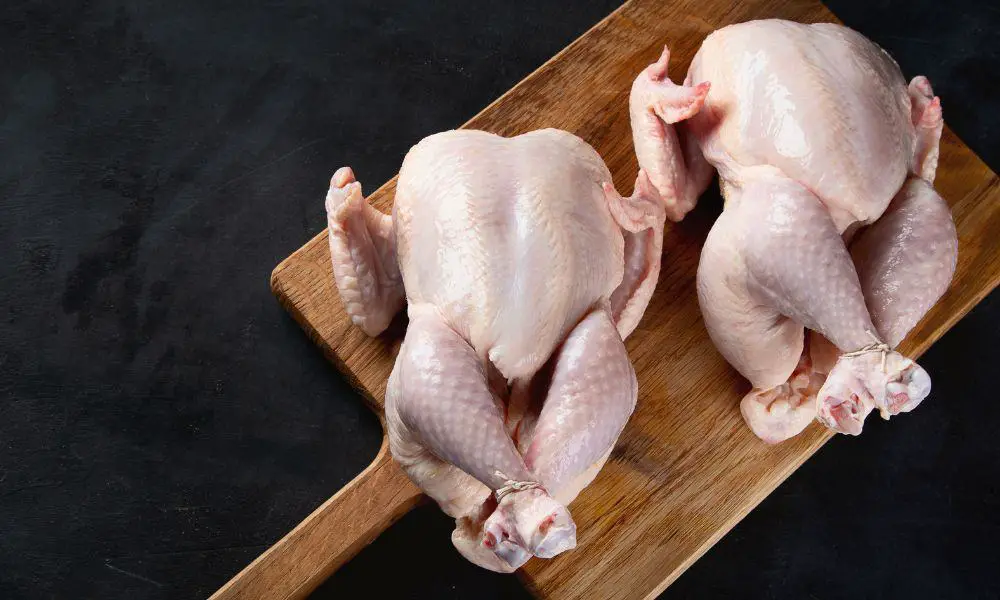There are two types of chicken lovers in the world. Those that brine their chicken, and those that like dry meat!
All jokes aside though, brining chicken can literally be the key to unlocking ultimate deliciousness and tenderness, particularly if you plan on slow roasting or smoking your chicken!
But, is it possible to overdo the brining process?
Perhaps you’ve just bitten into your chicken and have noticed it’s incredibly salty, or even that its texture seems… well, not what you expected.
Here’s how long you should brine your chicken, whether you can brine chicken too long, how you can tell it’s overbrined, and what you can do.

Brining chicken is seriously underrated.
Sure, it’s not ABSOLUTELY NECESSARY, but it certainly can make a huge difference to the tenderness and moisture of the cooked chook.
You see, the magic behind the brining process is salt. Over the course of the brining process, the salt is absorbed into the chicken via osmosis, helping it take on additional moisture and retain this moisture over the cooking period.
The longer the brine, the more salt is able to move through into the chicken (up to a certain level). As you can imagine, this salt does impact the saltiness of the chicken, and if brined too long, it can also impact the texture too!
How Long Should You Brine Chicken For?
Different meats take on the salt of a brine differently. Thinner meats take on the salt a lot quicker, and can therefore complete the brining process at a much faster pace, such as if you are brining ribs.
But, since chicken is a lot thicker, it can afford to stay in the brine for a lot longer than some other meats, without taking it too far.
Still, you don’t need to go overboard — like those recipes which recommend a whole 3 days in the brine!
To get the best out of the brining process, without over brining your chicken, you should look to brine your chicken for between 6 – 12 hours, up to a maximum of 24 hours.
In saying that, if your chicken is spatchcocked or broken down into breasts, legs, or drumsticks, then the brining process will take a lot less time. The same can be said if you are looking to dry brine your chicken too.
Can You Brine Chicken Too Long?

One of the most disappointing feelings in the world is biting into what you expect to be a perfectly delicious, tender, and juicy chicken only to find out that it’s simply not the case.
Could it really have been the brining process?
That’s right, it’s entirely possible to brine your chicken too long.
Although brining chicken can make it juicy and help it hold its moisture over the cooking process, if you brine your chicken too long it can become overly salty, or come out with a rather unpleasantly soft texture.
Over-brined chicken can occur if you leave your chicken in the brine for over 24 – 48 hours, or if you add too much salt to your brining liquid.
Can You Dry Brine Chicken Too Long?

Just like the wet brining process, you can indeed dry brine your chicken too long.
In fact, it’s actually much easier to see the effects of over brining your chicken if you’re dry brining.
This is because, just like wet brining, the salt infuses into the meat. But UNLIKE wet brining, you aren’t providing the chicken with any additional moisture to absorb either!
It’s recommended to only dry brine your chicken for about half the time as wet brining, so between 3 – 6 hours, and no longer than 12!
Always rinse off all excess salt after dry brining, and pat your chicken skin dry again to ensure it doesn’t turn rubbery over the cooking process.
How To Tell If Your Chicken Is Over Brined
So with all this talk about brining chicken too long how can you actually tell if your chicken is over brined?
Well, the number one indicator of an over-brined chicken is simply the overpowering taste of salt.
There’s really no doubting it either, if it’s over-brined you will certainly know. It really is unpleasant and the saltiness will easily overpower the natural flavor of the chicken.
If you’ve really brined your chicken for far too long you may also notice a change in texture on your chicken skin and meat.
The skin can easily become tough, as it withholds all its’ moisture over the cooking period. On the other hand, the chicken meat can become overly soft and feels like it’s a bit sludgy to the bite too.
How To Fix Over Brined Chicken

I’m not going to sugarcoat it (or salt coat it!). If your chicken is truly over brined is very hard to fix it.
But there are a few ways you can try to disguise it so that it’s still palatable.
So, if you’ve taken the first bite of your chicken and it’s simply too salty and you suspect you’ve over brined it, then:
- Try to serve it with a sweet or spicy sauce.
- Don’t serve anything else salty with your meal.
- Serve plenty of water or other refreshing beverages.
- Serve the innermost pieces of your chicken, as it’s likely the most affected area is the exterior.
However, these tactics aren’t magic, and sometimes you simply can’t rid of that overly salty taste.
So, the best way to fix over-brined chicken is to simply learn from your mistakes and ensure you don’t do it next time. Luckily, over-brining chicken tends to be a mistake you only make once.
Conclusion
When done right, brining your chicken can make it incredibly juicy, flavorful, and moist.
But, it IS possible to brine your chicken too long, causing it to absorb too much salt. The result is an overly salty and sometimes overly soft chicken.
So you should look to brine your chicken for between 6 – 12 hours, and no longer than 24 hours. This allows you to get the most out of the brining process — without risking over brining your chicken!

